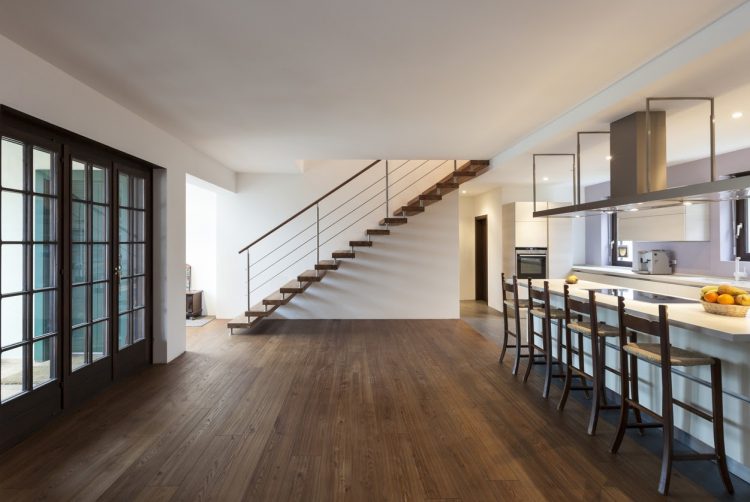Are there any signs of nature on your natural solid wood flooring? Although not serious, just a few tiny imperfections can make you feel a little dissatisfied with your beloved wooden floor. Why is my favorite wooden floor turning black? The answers to this question are many and varied, so if you have a strong desire to find out, follow us into the next hall of knowledge to find out!
Why has my wood floor turned black?
Why is my wood floor dark?
Moisture, mold and ultraviolet rays from the sun are the main culprits in the darkening of wooden floors. Understand the reasons in detail below to help you find the most suitable solution.
What is Floor Restoration? The Ultimate Process Revealed
Wet bamboo flooring
When moisture comes into close contact with the surface of wood, the darkening of the wood from water is particularly noticeable in some types of wood. This is triggered by the interaction of minerals contained in the water with the tannins inherent in the wood itself. As a result, floors that were originally lighter in color may turn darker or even take on a black hue.
In addition, for those who keep pets at home, it is especially crucial to keep an eye on the condition of the wooden floor, as pet urine can have a similar negative effect.
Mold and Mildew
Mold can be one of the main culprits in the darkening of wooden floors. When wooden floors are wet, black mold can quickly spread across the surface. If the floor is not dried in a timely manner, the mold will grow as its numbers continue to grow. On light-colored bamboo flooring, these black spots will undoubtedly bring great visual discomfort. These black streaks will spread as the mold grows and you must take immediate action to stop them from developing.
Ultraviolet Rays
UV rays from the sun are seen as one of the potential contributors to the darkening of wooden floors. This is especially true for oak floors, which are highly susceptible to darkening if exposed to direct sunlight for a long period of time. When wooden furniture in your house is directly exposed to UV rays, you need to take precautions in advance.
How to Remove Black Stains from Hard bamboo flooring
Thankfully, the darkening of your bamboo flooring is limited to the surface of the planks, rather than occurring from the bottom up or from the inside out. As a result, black streaks on bamboo flooring are relatively easy to treat. Here are a few effective ways to remove black stains from hard bamboo flooring for your reference.
Great tips for removing wet black stains
How to Remove Black Stains from Hard bamboo flooring?
It is not really difficult to remove wet black stains from bamboo flooring. If the discoloration is limited to the surface of the wood, we can easily remove them with 100 grit sandpaper.
Here are some cleaners that you may want to try and may be successful in removing black stains from your hard bamboo flooring:
Baking Soda
Mix an appropriate amount of baking soda with a small amount of water to make a thick paste.
Apply the paste evenly on top of the stain and leave it for about 15 to 20 minutes.
Afterward, gently scrub with a soft cloth or brush.
Once the residue is cleaned up, rinse the area with water.
Be sure to dry the floor thoroughly at the end.
Hydrogen Peroxide
Start by testing it in an inconspicuous spot to make sure it won’t cause the floor to fade or discolor.
Moisten a piece of cloth with hydrogen peroxide.
Cover the piece of cloth over the stain and let it sit for 10 to 15 minutes.
Next, gently rub it in, followed by washing it with water.
Allow the floor to dry completely before proceeding further.
Vinegar
Mix equal parts of white vinegar and water in a bowl or spray bottle.
Apply the prepared solution directly on top of the stain.
Wait for a few minutes.
Afterwards, gently scrub with a soft brush or cloth.
Rinse the area with water and dry thoroughly.
Or you can also refer to the following steps:
Clean the surface of the black floor first. service problems, please try again later.

